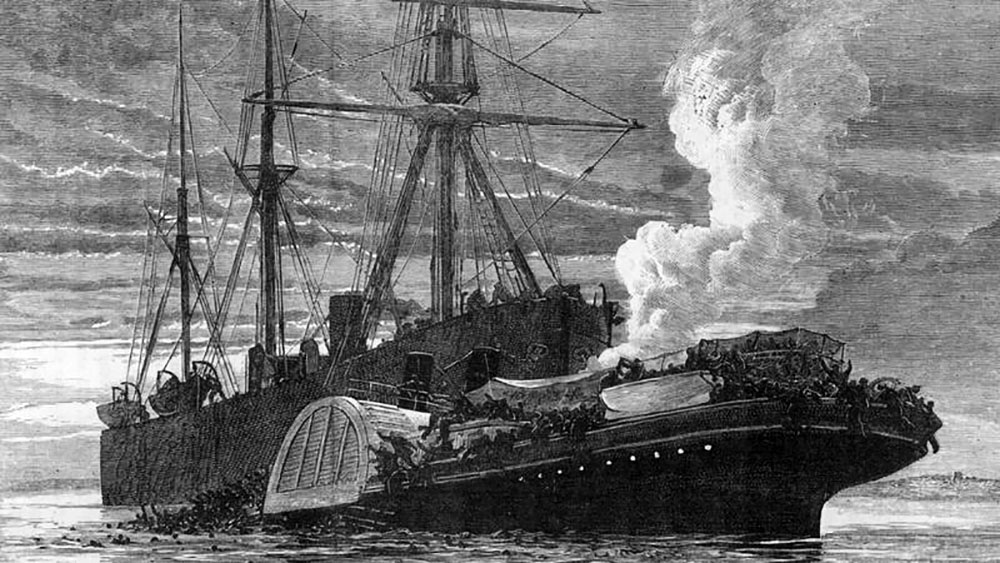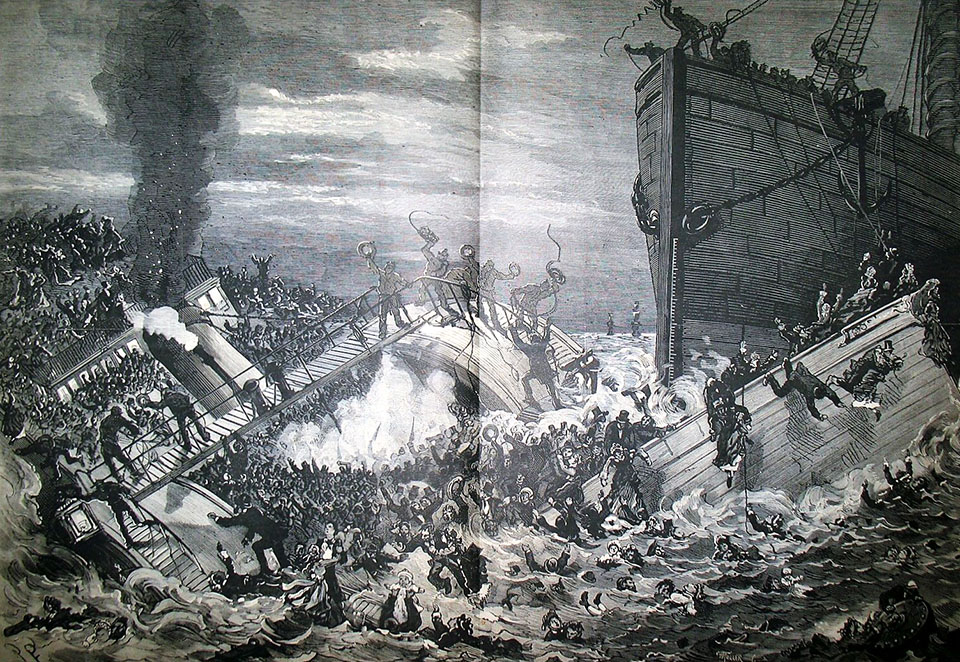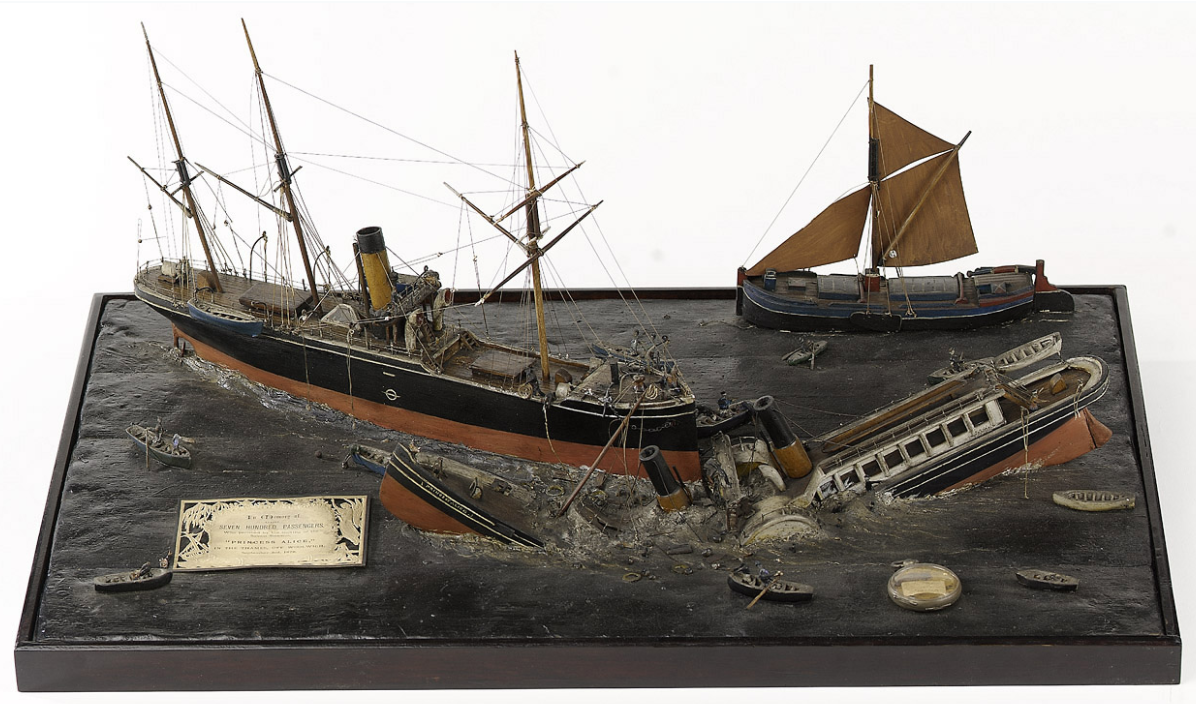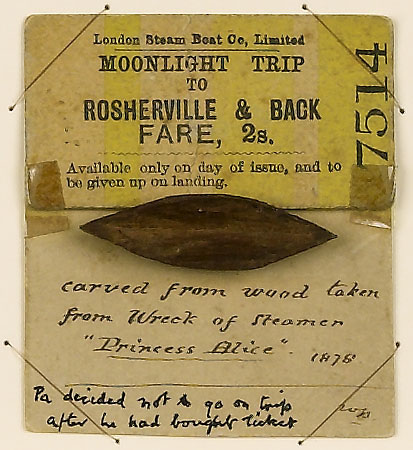A Horrible Tragedy
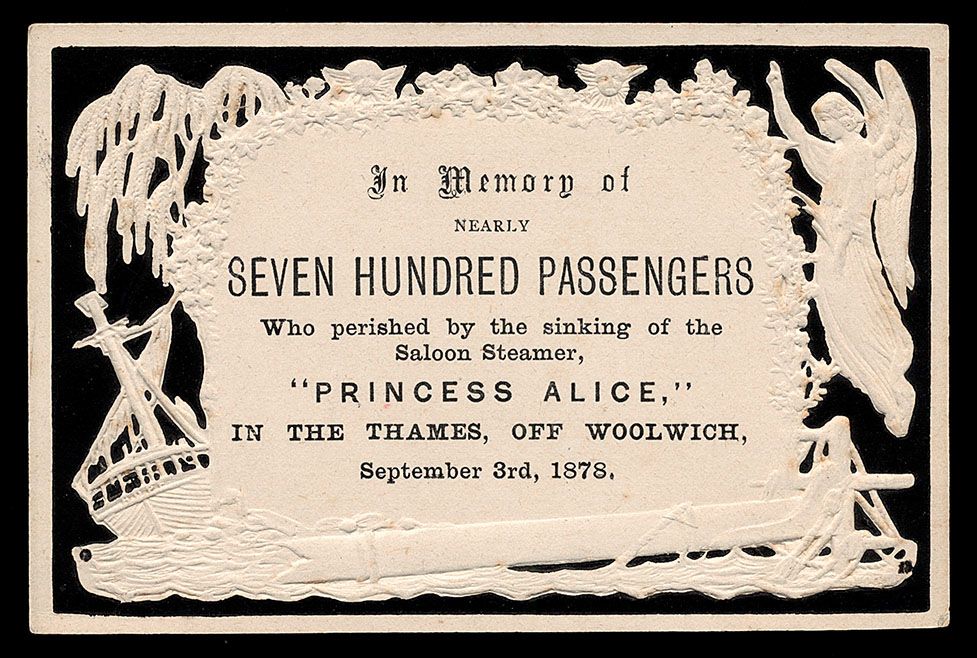
The worst inland waterways shipping accident in British history happened on September 3, 1878. On that evening some 650 unfortunate men, women and children drowned in sewage.
The 700 people on board the paddlewheel steamboat Princess Alice had spent a pleasant day at the Sheerness seashore, and were enjoying a moonlight cruise return trip on the Thames, when the Princess Alice was smashed amidships as it crossed in front of a large 1400-ton coal ship, the Bywell Castle. The Princess Alice was sliced in two and sank within four minutes. Many of the doomed were trapped below in the saloon or in their cabins. Those who jumped off the boat discovered to their further horror that they were immersed in raw sewage. Seventy-five million imperial gallons of sewage had just been released into the Thames at that place, the location of London’s sewage pumping stations. Adding to the foul “water” at that spot was untreated waste from a gas plant, several chemical factories, and oil in from a fire earlier in the day. Hundreds drowned in the pollution, and sixteen who had been rescued later died from what had been ingested.
An embossed memorial card in my collection was issued in memory of the victims. The exact number who lost their lives is unknown as there was neither a passenger list nor a head count. Most victims were buried, unidentified, in a mass grave.
Following this tragedy, London began to treat its sewage, and changed to transporting the effluent to the North Sea in barges rather than simply dumping it untreated into the Thames. After various hearings and competing lawsuits, the Admiralty Division of the High Court of Justice decided that some blame could be assigned to each ship.
